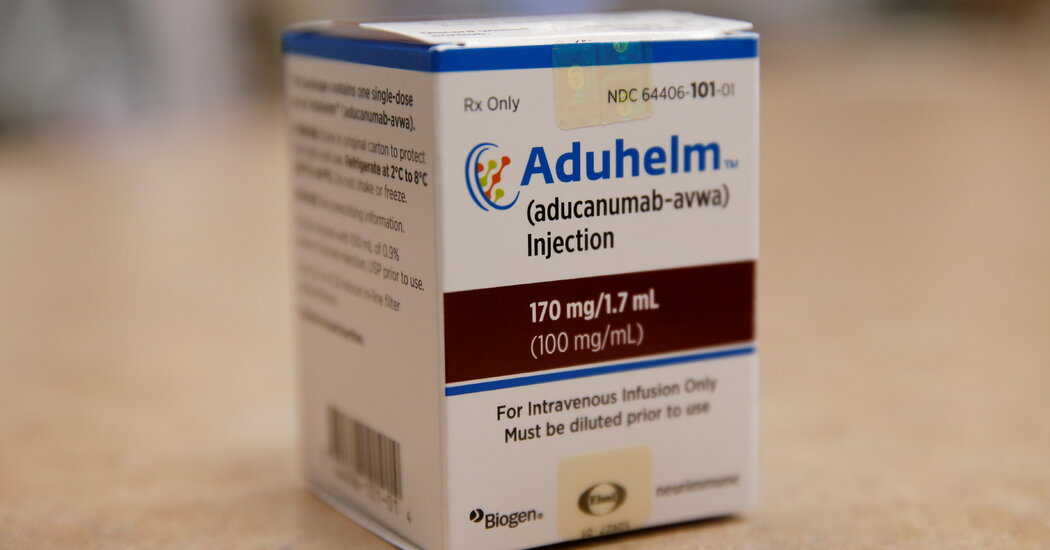

Safety data from those trials was published Monday in the journal JAMA Neurology in a study whose authors included eight Biogen employees.
The data showed that 425 of 1,029 patients, or 41 percent, who received the high dose of the drug — the dose that the F.D.A. later approved — experienced either brain swelling or bleeding. Sixty-four patients had to stop participating in the trials because of swelling or bleeding.
Most of the affected patients, 362, experienced swelling, and 94 of those reported symptoms, according to the study, which also said that most cases of brain swelling resolved within 16 weeks. In a statement, Biogen noted that most swelling emerged early in the treatment period, either while patients were being ramped up to the high dose or shortly after they reached that dose.
The study, which reported on the same safety data Biogen presented to the F.D.A. during the drug review process, said that symptoms like headaches, confusion, dizziness or nausea occurred in 103 patients receiving the dose that was later approved. Less frequent symptoms included fatigue, visual impairment, blurred vision and gait disturbance.
Biogen said that M.R.I.s showed that swelling or bleeding was mild or moderate in most patients with those side effects. Still, the study reported that scans showed severe effects in 12 percent of patients with swelling, 12 percent of patients with microbleeds and 22 percent of patients with a type of slow brain bleeding.
The study said that people with moderate or severe swelling were taken off the drug until their episode resolved. Those with mild swelling and no symptoms could stay on the drug, and the study said their swelling did not get worse.
There were no deaths as a result of brain swelling or bleeding in the two trials, the study said. In an earlier safety study, one participant died. The 75-year-old woman who died in September was participating in an extension trial of the drug, Biogen said.
More of the patients with brain swelling or bleeding were carriers of a gene mutation, APOE4, which also increases a person’s risk of developing Alzheimer’s disease. While patients in the trials appeared more likely to experience a slowing of decline if they carried the APOE4 mutation, the data suggests they also face greater safety risks from the drug.



